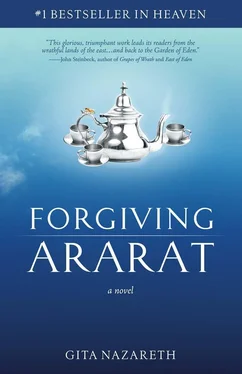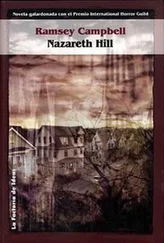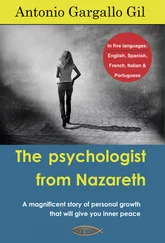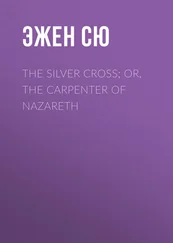Suddenly the Urartu Chamber emerges into the foreground, displacing Bonnie Campbell’s seedy apartment. Haissem bows solemnly before the monolith, then walks over to join Luas and me. The glittering walls of the Chamber vanish just as magically as they appeared. The three of us-Luas, Haissem, and I-are left standing in the vacant corridor of the train station in front of the large wooden doors and near the animated stone sculptures on the wall.
Haissem turns to me and says: “The trial is over. A verdict has been reached.”
After the trial of Toby Bowles, I knew I no longer existed in the living world to which I had once belonged-your world, there on earth. Something momentous had happened to me, something so altering and absolute that reality itself was replaced by a new archetype of existence that could no longer be postponed or denied. It wasn’t a matter of voluntarily accepting the fact of my death, any more than one voluntarily accepts the fact of one’s life. It was more basic than that: a simple acknowledgment that this is what is now, and the other is no more.
Oddly enough, accepting my death wasn’t terrifying; it was, in a way, liberating. I no longer had to rationalize the bizarre things happening around me and to me; I no longer had to search for a cure to an illness or an injury that did not exist. And I realized I no longer had to carry the many burdens of life: I no longer had to go to work, shower, brush my teeth, eat, sleep, exercise, or take care of my husband and daughter. Death is the ultimate vacation away from everything .
Even so, I found admitting my death to be deeply shameful and embarrassing. In the end, death is the ultimate failure in life, the condition we fear, fight, avoid at all cost, that our every biological instinct and emotion abhors and resists. No one is admired on earth for having accomplished the feat of one’s own death; even the words used to describe it are pejorative: you’ve either “lost” your life, as if you’ve somehow been careless and misplaced it, or your life has been “taken,” “stolen,” “forfeited,” or “given up.” I was one of the losers now. The fact that all of the people in history who had come before me were losers too-and that all the people who would come after me were losers in waiting-didn’t make my being dead any less humiliating. Even though I had a pretty good excuse for not taking care of my husband and daughter anymore, I was still away from them. I had abandoned them. Even worse, I had abandoned myself -Brek Cuttler: human being, mother, wife, daughter, granddaughter, friend, lawyer, neighbor, American, all no more.
The more I thought about everything I had lost, the more angry I became. The injustice of dying after only thirty-one years of life galled me like nothing I had ever experienced before; it was a hot anger that burned hotter because I had no way to express the enormity of my loss, particularly to my Nana. She listened patiently, but she could not, I thought, understand my condition because, unlike me, she had died after having lived a full, complete life, raising her children to adulthood and seeing her grandchildren and even her great-grandchildren.
I also discovered that, like life, the afterlife is governed by a law of special relativity. This law holds that, from the perspective of the one who has died, one’s own death feels not like the death of oneself, but rather like the death of the billions of others who remain alive but can no longer be seen. It was as though I was the lone survivor of a nuclear Armageddon. From my perspective, I had not been taken away from my family; my family had been taken away from me. I lost even more than this; I lost my entire world-the earth that had sheltered me, the waters that had nourished me, the sky that had inspired me-all vanished into a lyrical, haunted oblivion.
What finally broke me, though-the thing that drove me into the prolonged silence of grieving that replaces and becomes anger’s surrogate-was not the gnawing despair of having lost everything, but the sarcastic resemblance of the afterlife to life itself. There was no release in my heaven, no salvation, no comfort, no “better place” to which I had gone after my death-there was, instead, only a perverse continuation of the discordant strands of my old life, freed of physical laws and boundaries, as if life and death were merely potential states of the same cynical mind. Where was the reward? Where was the eternal repose promised by the prophets? I had come full circle: the burdens of life had been replaced by the burdens of death. For my thirty-one years of effort, I was being trained for a new job at a new law firm: Luas & Associates, Attorneys-at-Divine Law.
The chilling trial of Toby Bowles had the incongruous effect of both deepening and lessening my own misery by showing me that things could actually be worse. On the way out of the train station after the trial, Haissem told me that only a fraction of Mr. Bowles’ life had been presented, and a misleading portrait of his soul had been created. Yet he seemed perfectly content with this, and Luas shared his indifference, seeming almost amused by my concern. I asked Haissem what he would have offered in Mr. Bowles’ defense if the trial had continued.
“Oh, many things,” he said nonchalantly. “For example, Toby was actually a very kind and caring man. When his train stopped at the Altoona rail yard, he would change into his Sunday clothes and hitchhike into the mountains to visit with his sister, Sheila, who lived in a beautiful private home for mentally retarded women on the shore of a small mountain lake. She lived at this home instead of the wretched public asylum to which she had been confined since a child because every month of every year since the war, Toby Bowles paid the bills that allowed her to live there-even though he would never own a new car or a home as grand as Paul and Marion Hudson’s. Sometimes he and Sheila played together, walking through the rooms of the home on imaginary journeys she created; Toby would be her customer in a store selling only hugs, or the passenger on an airplane flying to the ends of rainbows; they would climb trees and relax in the clouds, or paddle across the lake, which she thought the most exotic place on earth. He was always patient with her, and Sheila would always take Toby up to her room before he left and show him the black and white photograph of their mama and papa with their forced smiles on the day she was born, holding their baby Sheila not too close because of the deformities in her face and limbs that are the clinical signs of Down’s syndrome.
“Toby suffered many injustices during his life as well,” Haissem continued. “He was eleven years old when Sheila was born and that photograph was taken; it was the last photograph they had of their father, Gerard Bowles, who came home from the hospital that day with his face dark with disgrace and loathing; he told Toby his mother had done something very wrong and that God had punished her for it and he must leave and never return. Toby was relieved by his father’s departure at first, because Gerard Bowles had been cruel to Toby and his mother, sometimes beating them with his belt the way Toby sometimes did with his own children-all the while quoting passages from the Bible about sin and the purification of the soul. But Toby soon learned what the loss of a father meant when his mother wouldn’t stop crying and packed up their things to go live with his grandparents. This was when his new sister Sheila was taken away as a ward of the state. Lying in bed late at night, Toby worried for Sheila’s and his father’s safety; he prayed for their return, asking God to please forgive his mother for whatever she had done wrong to cause their family to split apart.
Читать дальше












